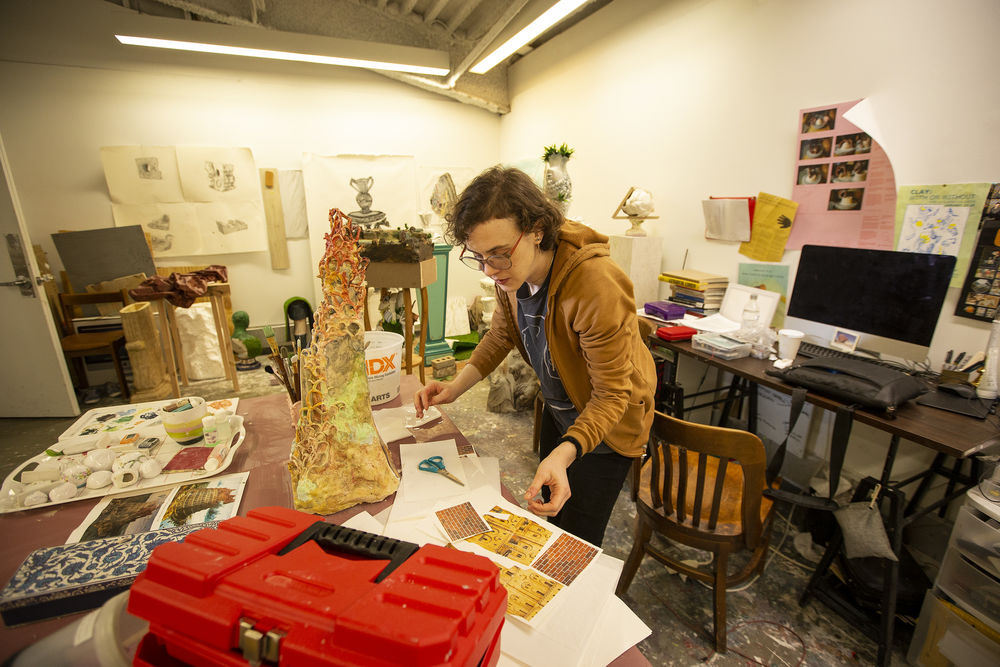Master of Fine Arts in Ceramics
Explore the expansive practices of clay as both a historic and contemporary material with the Master of Fine Arts in Ceramics program at the Tyler School of Art and Architecture at Temple. Through an engaged presence in the field, a supportive community of students and alumni, and a critical pedagogy, the two-year, 60-credit master's degree program offers a multitude of perspectives, approaches and possibilities. Our internationally recognized faculty, state-of-the-art facilities and Philadelphia’s diverse clay culture offer a generative space to imagine and expand oneself and one’s work.
The close-knit Ceramics MFA community is connected to the extended Tyler MFA cohort through mentorship from a faculty of socially conscious artists, technologists, designers and art historians. The ceramics faculty engage one-on-one with students to develop individual direction and encourage the exchange of ideas—in the studio and across Philadelphia—supported by the resources of Temple, a large public research university.
Using a studio-based approach complemented by art history seminars, the program’s curriculum empowers students to engage deeply and develop a holistic practice with supportive research and interdisciplinary exploration.
As members of the region’s preeminent ceramics program, students partner with organizations in Philadelphia—a city with an established clay tradition and a thriving contemporary art scene—as well as other major cultural centers nearby, including New York. Philadelphia also offers opportunities for students to join a flourishing arts and culture community and work as practicing artists and professionals.
Hands-on Learning and Experiences
Tyler's graduate ceramics curriculum places a strong emphasis on hands-on, interdisciplinary learning, as well as encouraging MFA students to take advantage of Philadelphia's art resources and institutions. With a wide range of tools and equipment, the program supports wheel work, mold-making and slip-casting projects, and digital fabrication. Large kilns are available for hand-building and sculpture. Students are expected to demonstrate both conceptual and technical excellence, as well as a profound interest in research and experimentation. Students are encouraged to investigate a wide range of processes as they develop their own personal visions.
Thesis Exhibition
An approved thesis exhibition, written statement of working philosophy, and a digital portfolio are required at the final review in order to meet the MFA requirements. The thesis exhibition should be the fruit of the two years' studio research and practice in which the student engaged. The student defends their thesis exhibition to the review committee. The committee then evaluates the exhibition as pass with distinction, pass or fail.

